Eczema
How to submit an article:
- Registered users can submit any published journal article that has a unique DOI (Digital Object Identifier) name or link to Research Hub.
- For example, you can paste the full DOI link:
https://doi.org/10.1109/5.771073or just the DOI name:10.1109/5.771073into the field above and click submit. - The person who is first to submit a valid article to Research Hub will forever be credited for it, and every article submission earns you +6 Research Points.
Also known as: Atopic Dermatitis
Related Topics
Published research studies are articles that present the findings of original research that has undergone a peer-review process and has been made publicly available in scholarly journals, books or other media.
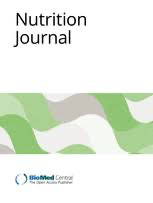
Association of maternal ultra-processed food consumption during pregnancy with atopic dermatitis in infancy: Korean Mothers and Children’s Environmental Health (MOCEH) study
2024 Jun 25 Nutrition Journal Jang W, Kim M, Ha E, Kim H
Cohort Study Eczema Ultra-Processed FoodsHigher consumption of ultra-processed food by pregnant women was linked to an increased risk of infantile atopic dermatitis within the first year of life.

Anti-atopic dermatitis effect of a modified Huang-Lian-Jie-Du decoction and its active fraction on 2,4-dinitrobenzene and MC903-induced mouse models
2022 Sep Phytomedicine Wang L, Hu Z, Yang W, Loo SKF, Ip SP, Xian YF, et al.
This study reported for the first time that modified Huang-Lian-Jie-Du Decoction (MHLJDD) and its active fraction could be used as innovative therapeutic agents for atopic dermatitis (AD).
Animal Study Eczema
Efficacy and safety of Chinese herbal medicine for atopic dermatitis: Evidence from eight high-quality randomized placebo-controlled trials
2022 Sep 27 Frontiers in Pharmacology Cai X, Sun X, Liu L, Zhou Y, Hong S, Wang J, et al.
Systematic Review EczemaChinese herbal medicine (CHM) improved AD symptoms but had no significant impact on patients' quality of life or IgE levels suggesting CHM's potential as an AD treatment with further research.

Tremella fuciformis polysaccharides alleviate induced atopic dermatitis in mice by regulating immune response and gut microbiota
2022 Aug 25 Frontiers in Pharmacology Xie L, Yang K, Liang Y, Zhu Z, Yuan Z, Du Z
Experimental Study Animal Study Polysaccharides Gut Microbiota Eczema Snow FungusOral administration of Tremella fuciformis polysaccharides may constitute a new, effective therapy for Atopic dermatitis, improving both immune response and intestinal microbiota.
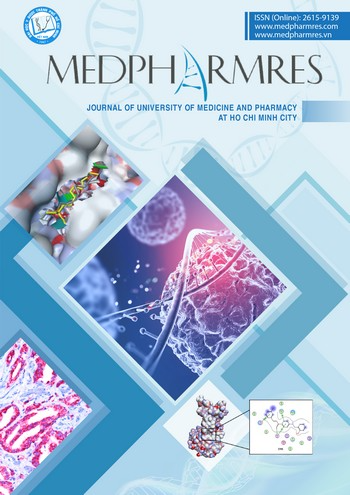
The effects of auricular acupuncture at Lung, Shenmen, Endocrine, Adrenal points on adult eczema: a randomized trial
2022 Jul 11 MedPharmRes Thi Trinh DT, Man Pham Bui M, Thuong Nguyen H
Combining auricular acupuncture Lung, Shenmen, Endocrine, Adrenal points, and modern medication treatment may relieve effectively symptoms and improve the quality of life (qoL) in adult eczema (AE).
Randomised Controlled Trial EczemaResearch insights are moderated by the Research Hub team and offer an at-a-glance overview of interesting research findings.

2024 Nutrition Journal
Higher consumption of ultra-processed food by pregnant women was linked to an increased risk of infantile atopic dermatitis within the first year of life.
Cohort Study Ultra-Processed Foods
Association of maternal ultra-processed food consumption during pregnancy with atopic dermatitis in infancy: Korean Mothers and Children’s Environmental Health (MOCEH) study
Jang W, Kim M, Ha E, Kim H

2022 Frontiers in Pharmacology
Chinese herbal medicine (CHM) improved AD symptoms but had no significant impact on patients' quality of life or IgE levels suggesting CHM's potential as an AD treatment with further research.
Systematic Review
Efficacy and safety of Chinese herbal medicine for atopic dermatitis: Evidence from eight high-quality randomized placebo-controlled trials
Cai X, Sun X, Liu L, Zhou Y, Hong S, Wang J, et al.

2022 Frontiers in Pharmacology
Oral administration of Tremella fuciformis polysaccharides may constitute a new, effective therapy for Atopic dermatitis, improving both immune response and intestinal microbiota.
Experimental Study Gut Microbiota Polysaccharides Snow Fungus
Tremella fuciformis polysaccharides alleviate induced atopic dermatitis in mice by regulating immune response and gut microbiota
Xie L, Yang K, Liang Y, Zhu Z, Yuan Z, Du Z

2021 Frontiers in Nutrition
Processed food consumption, particularly pickles and processed meats, is linked with atopic dermatitis in Chinese adults.
Cohort Study Ultra-Processed Foods
Processed Food and Atopic Dermatitis: A Pooled Analysis of Three Cross-Sectional Studies in Chinese Adults
Li Y, Su J, Luo D, Duan Y, Huang Z, He M, et al.

2021 Frontiers in Pharmacology
Honey, traditionally a food item, exhibits therapeutic properties—anti-microbial, anti-inflammatory, anti-cancer, and wound healing—showing promise in managing and preventing allergic diseases, as supported by scientific evidence and clinical studies.
Review Article Allergy
The Potential use of Honey as a Remedy for Allergic Diseases: A Mini Review
Aw Yong PY, Islam F, Harith HH, Israf DA, Tan JW, Tham CL
Review Articles
Review articles summarise and critically evaluate the current state of research on a specific topic or field by synthesising multiple primary research studies.

Efficacy and safety of Chinese herbal medicine for atopic dermatitis: Evidence from eight high-quality randomized placebo-controlled trials
2022 Sep 27 Frontiers in Pharmacology Cai X, Sun X, Liu L, Zhou Y, Hong S, Wang J, et al.
Systematic Review EczemaChinese herbal medicine (CHM) improved AD symptoms but had no significant impact on patients' quality of life or IgE levels suggesting CHM's potential as an AD treatment with further research.

Clinical Efficacy of Integrated Traditional Chinese and Western Medicine in the Treatment of Eczema: A Meta-Analysis
2022 Mar 03 Frontiers in Pharmacology Xingxing Wang, Jian Meng, Qing Wu, Jingjing Feng, Huiling Jing
Retracted Article Systematic Review Meta-Analysis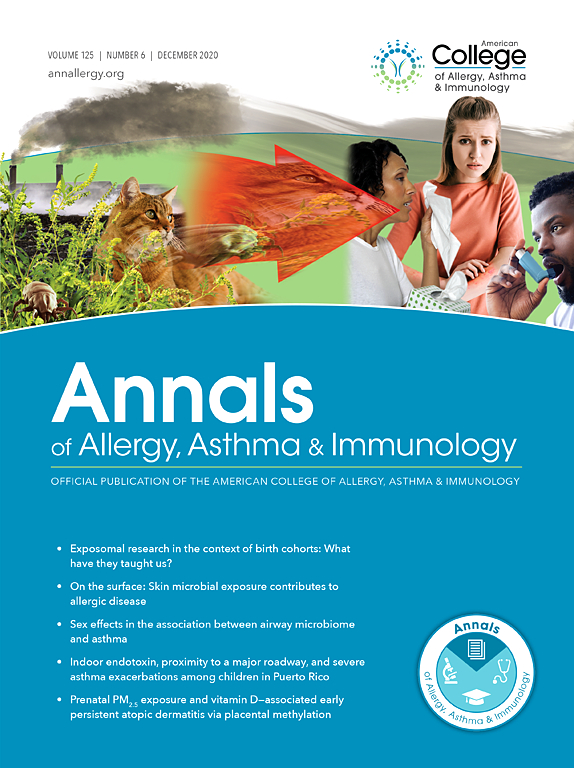
Traditional Chinese medicine for food allergy and eczema
2021 Jun Annals of Allergy, Asthma & Immunology Wang Z, Wang ZZ, Geliebter J, Tiwari R, Li XM
TCM has potential as safe and effective therapy for food allergy and eczema. Further research is needed for botanical drug development and to further define the mechanisms of actions.
Review Article Food Allergy
Efficacy and Safety of Runzao Zhiyang Capsule as an Add-On Therapy for Chronic Eczema: A Systematic Review and Meta-Analysis
2021 Mar 17 Evidence-Based Complementary and Alternative Medicine Li M, Zhou B, Zhou L, Li L
Runzao Zhiyang capsule (RZC) as an add-on therapy to conventional treatment shows good effects on chronic eczema, and there is no severe side effect from short-term use of RZC.
Systematic Review Meta-Analysis Skin Conditions Eczema
Efficacy of Longdan Xiegan Decoction on the Treatment of Eczema: A Systematic Review and Meta-Analysis
2021 Feb 18 Evidence-Based Complementary and Alternative Medicine Hu Z, Gao L, Li C, Cucco A, Wang S, Yuan W, et al.
The clinical efficacy of Longdan Xiegan decoction (LDXGD) in the treatment of eczema was more effective compared with the one of conventional WM alone.
Systematic Review Meta-Analysis Long Dan Xie Gan Tang EczemaClinical Trials
Clinical trials are research studies that involve people and are conducted to evaluate the safety and efficacy of new treatments or interventions, such as drugs, medical devices, or behavioural therapies.

The effects of auricular acupuncture at Lung, Shenmen, Endocrine, Adrenal points on adult eczema: a randomized trial
2022 Jul 11 MedPharmRes Thi Trinh DT, Man Pham Bui M, Thuong Nguyen H
Combining auricular acupuncture Lung, Shenmen, Endocrine, Adrenal points, and modern medication treatment may relieve effectively symptoms and improve the quality of life (qoL) in adult eczema (AE).
Randomised Controlled Trial Eczema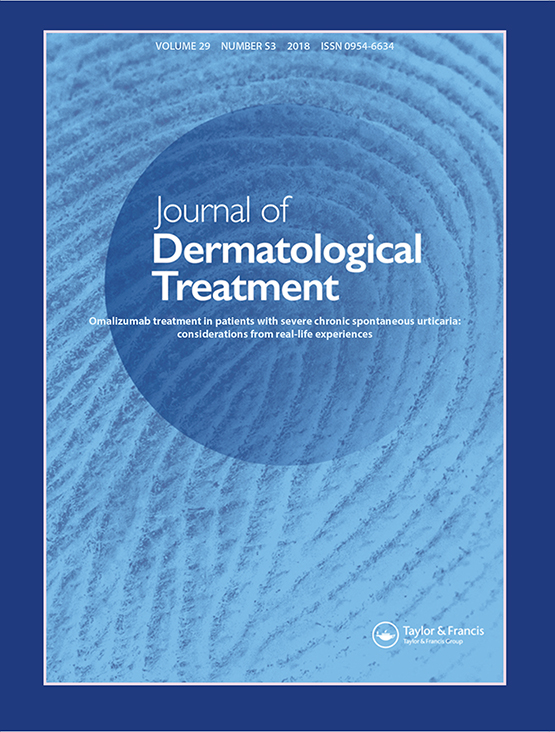
Efficacy and safety of Run Zao Zhi Yang capsule on chronic eczema: a multiple-center, randomized, double-blind, placebo-controlled clinical study
2019 Jun 20 Journal of Dermatological Treatment Huang D, Chen K, Zhang FR, Yang S, Guo Q, Xu JH, et al.
Run Zao Zhi Yang capsule (RZZYC) provides a good effect on the treatment of mild-to-moderate chronic eczema with a low recurrence and tolerable adverse events, and is a potential treatment that may be implemented in clinical practice.
Randomised Controlled Trial Run Zao Zhi Yang Capsule
Acupuncture improves symptoms in patients with mild-to-moderate atopic dermatitis: A randomized, sham-controlled preliminary trial
2018 Mar 4 Complementary Therapies in Medicine Smith CA, Armour M, Lee MS, Wang LQ, Hay PJ
Randomised Controlled Trial Eczema Skin ConditionsAcupuncture may improve symptoms in patients with mild-to-moderate atopic dermatitis.
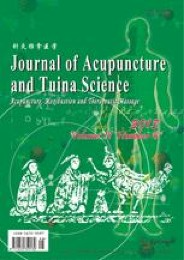
Clinical observation on treatment of chronic eczema with acupuncture plus acupoint injection therapy
2013 Oct Journal of Acupuncture and Tuina Science Li M, Pu X
Acupuncture plus acupoint injection therapy is effective for chronic eczema with high in safety.
Randomised Controlled Trial Acupuncture EczemaStudy Protocols
Published study protocols are detailed plans that outline the objectives, methodology, statistical analyses, and organisation of a research study that have been made publicly available for others to review and use as a reference.

The efficacy and safety of Longmu Tang granule for the treatment of atopic dermatitis: study protocol for a single-centred, double-blinded, randomised, placebo-controlled trial
2022 May 09 BMC Complementary Medicine and Therapies Li Y, Shen T, Wang Q, Ma M, Tian F, She Y, et al.
The results of this trial will provide evidence of the efficacy and safety of the Longmu Tang granule and prove its anti-inflammatory action in patients with atopic dermatitis (AD).
Study Protocol Eczema
The herbal drug, Bu-Zhong-Yi-Qi-Tang, for the treatment of atopic dermatitis
2019 Jan Medicine Jeong MK, Kim YE, Kim A, Jung J, Son MJ
Thus, in this study, we will investigate the clinical evidence related to the effectiveness of Bu-Zhong-Yi-Qi-Tang (BZYQT) for treating atopic dermatitis (AD).
Study Protocol Eczema
Chinese herbal medicine granules (PTQX) for children with moderate to severe atopic eczema: study protocol for a randomised controlled trial
2015 Jul 07 BMC Complementary Medicine and Therapies Gu SX, Zhang AL, Coyle ME, Mo X, Lenon GB, Cranswick NE, et al.
Key elements for conducting a high-quality randomised clinical trial have been addressed in this protocol. Findings from the proposed trial will provide critical evidence regarding Chinese herbal medicine treatment for atopic eczema.
Study ProtocolPresentation Slides

Cohort Study
Higher consumption of ultra-processed food by pregnant women was linked to an increased risk of infantile atopic dermatitis within the first year of life.
Jang W, Kim M, Ha E, Kim H

Systematic Review
Chinese herbal medicine (CHM) improved AD symptoms but had no significant impact on patients' quality of life or IgE levels suggesting CHM's potential as an AD treatment with further research.
Cai X, Sun X, Liu L, Zhou Y, Hong S, Wang J, Chen J, Zhang M, Wang C, Lin N, Li S, Xu R, Li X

Experimental Study
Oral administration of Tremella fuciformis polysaccharides may constitute a new, effective therapy for Atopic dermatitis, improving both immune response and intestinal microbiota.
Xie L, Yang K, Liang Y, Zhu Z, Yuan Z, Du Z

Cohort Study
Processed food consumption, particularly pickles and processed meats, is linked with atopic dermatitis in Chinese adults.
Li Y, Su J, Luo D, Duan Y, Huang Z, He M, Tao J, Xiao S, Xiao Y, Chen X, Shen M

Review Article
Honey, traditionally a food item, exhibits therapeutic properties—anti-microbial, anti-inflammatory, anti-cancer, and wound healing—showing promise in managing and preventing allergic diseases, as supported by scientific evidence and clinical studies.
Aw Yong PY, Islam F, Harith HH, Israf DA, Tan JW, Tham CL
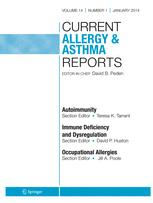
Review Article
Traditional Chinese Medicine, specifically acupuncture, demonstrates promising effects in managing allergic diseases like allergic rhinitis and asthma.
Chan HHL, Ng T

Systematic Review
Acupuncture might be effective at reducing itch intensity and may be more effective than conventional medicine at reducing eczema area and severity index (EASI) and improving the global symptoms of atopic eczema.
Jiao R, Yang Z, Wang Y, Zhou J, Zeng Y, Liu Z

Randomised Controlled Trial
Acupuncture may improve symptoms in patients with mild-to-moderate atopic dermatitis.
Smith CA, Armour M, Lee MS, Wang LQ, Hay PJ
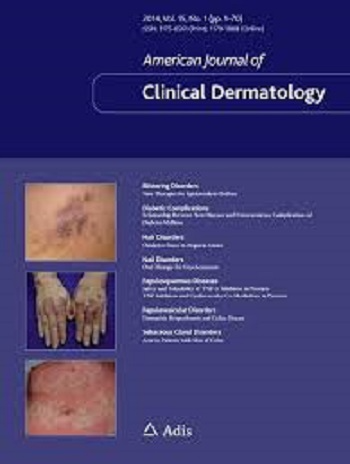
Systematic Review
There is at least some level I evidence to support the use of acupuncture and acupressure as adjuncts to conventional treatment of atopic dermatitis.
Vieira BL, Lim NR, Lohman ME, Lio PA.
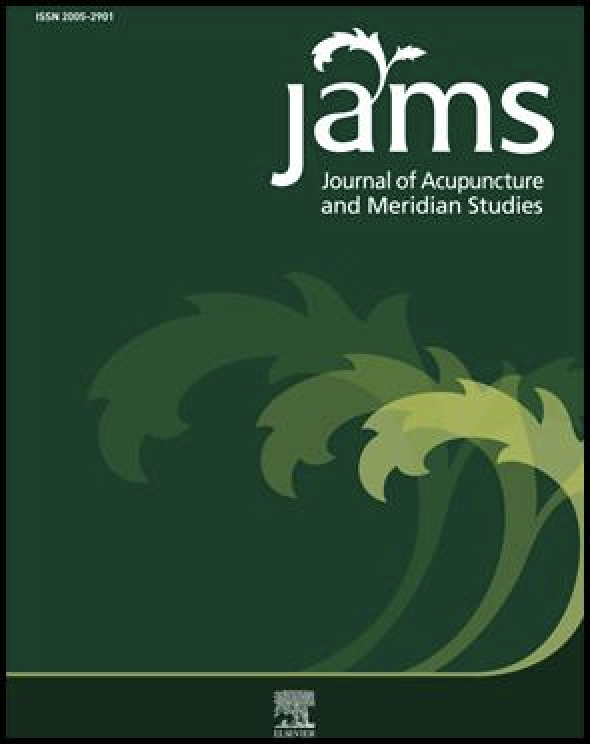
Systematic Review
Acupuncture improves outcome measures in the treatment of dermatitis, chloasma, pruritus, urticaria, hyperhidrosis, and facial elasticity.
Ma, C., & Sivamani, R. K.
Executive Summary
Write an executive summary in the form of a blog article on the topic of "Research into Chinese medicine treatment for Eczema" summarising the research below and using language that can be easily understood by patients and avoiding medical jargon using a professional and caring tone of voice.
Write an executive summary in the form of a blog article on the topic of "Researched Chinese medicine treatments for Eczema" summarising the research below in an objective and easy to understand way, and using language that can be easily understood by patients. Group the article into Chinese medicine treatments first, followed by nutrition and other treatments. Avoid using medical jargon and use a professional and caring tone of voice.
Write me a concise but easy to understand executive summary on the topic of "Chinese medicine treatments for Eczema" based on the following research that I will give you. Your summary should be 2 paragraphs long in Australian English spelling and include references to the studies.
A Cohort Study published in 2024 in the journal Nutrition Journal found that Higher consumption of ultra-processed food by pregnant women was linked to an increased risk of infantile atopic dermatitis within the first year of life. The research used 861 pairs of pregnant women and their offspring from the Mothers' and Children's Environmental Health project in Korea. These women’s dietary intake was measured using the 24-hour recall method during 12-28 weeks gestation. Foods were classified as ultra-processed following the NOVA classification and their consumption was calculated as the proportion of total energy intake, with participants categorized into quartiles. The prevalence of infantile atopic dermatitis was assessed based on their medical histories and according to the International Study of Asthma and Allergies in Childhood criteria. The results revealed that children born to mothers in the highest quartile of ultra-processed food consumption, compared to the lowest quartile, showed a higher risk towards atopic dermatitis within 12 months. This relationship became stronger after adjusting for certain confounding variables. Additionally, the link stayed consistent even after adjusting based on the Korean Healthy Eating Index, which measures diet quality.
A Systematic Review published in 2022 in the journal Frontiers in Pharmacology found that Chinese herbal medicine (CHM) improved AD symptoms but had no significant impact on patients' quality of life or IgE levels suggesting CHM's potential as an AD treatment with further research. CHM showed benefits in improving AD symptoms, such as itching and skin appearance, compared to placebos. However, it didn't significantly affect patients' quality of life or IgE levels. CHM was safe, with only minor side effects. These findings suggest CHM could be a useful treatment for AD, but more standard guidelines are needed due to variations in herbal ingredients and dosages in different studies.
A Experimental Study published in 2022 in the journal Frontiers in Pharmacology found that Oral administration of Tremella fuciformis polysaccharides may constitute a new, effective therapy for Atopic dermatitis, improving both immune response and intestinal microbiota. In the methodology of this study, the therapeutic effects of Tremella fuciformis polysaccharides (these have multiple biological activities), on Atopic dermatitis, were examined through both topical application and oral administration on mice induced with Atopic dermatitis-like disorder. The changes across transdermal water loss, epidermal thickening, and ear edema in the affected mice were observed. Notably, the study also considered the polysaccharides' impacts on the proportion of specific regulatory T cells in the mesenteric lymph nodes of the mice. The results showed that both therapeutic methods positively impacted the conditions of the affected mice, with oral administration offering superior efficacy over topical application. The oral administration of the polysaccharides led to an increase of specific regulatory T cells, evidence of immune regulation. Further, non-targeted metabolomics and sequencing of certain DNA amplicons pointed towards observable modulation in fecal metabolites and a changed composition of gut microbiota in the mice following the oral treatment.
A Cohort Study published in 2021 in the journal Frontiers in Nutrition found that Processed food consumption, particularly pickles and processed meats, is linked with atopic dermatitis in Chinese adults. This study involved a series of three cross-sectional studies that used cluster sampling across different locales, including villages, institutions, and factories. Subjects from different socio-economic and occupational backgrounds, including rural residents, civil servants, and factory workers, were subjected to dermatological evaluations by certified dermatologists. Alongside this, they responded to a food frequency questionnaire designed to understand their regular dietary habits. A spot urine sample was also taken from each participant to get an accurate measure of their daily sodium intake. The analysis of results showed a significant association between atopic dermatitis and the consumption of certain processed foods - specifically, pickles and processed meats. It was found that people consuming pickles and processed meats 1-3 times a week were more likely to develop atopic dermatitis compared to individuals who rarely or never consumed these foods. Furthermore, a strong correlation was observed between higher sodium intake and the incidence of atopic dermatitis. The trend shows a dose-dependent relationship, meaning that as the intake of these specific processed foods, and sodium increased, so did the chances of coming down with atopic dermatitis.
A Review Article published in 2021 in the journal Frontiers in Pharmacology found that Honey, traditionally a food item, exhibits therapeutic properties—anti-microbial, anti-inflammatory, anti-cancer, and wound healing—showing promise in managing and preventing allergic diseases, as supported by scientific evidence and clinical studies. This mini review explores honey's transition from a conventional food to a potential treatment for allergic diseases. Emphasis is placed on its diverse therapeutic properties, particularly its ability to alleviate pathological conditions and regulate inflammatory cell recruitment in cellular and animal models. Scientific evidence and clinical studies suggest that honey holds potential in relieving allergic symptoms, offering a promising treatment or preventive approach for allergic diseases such as anaphylaxis, asthma, and atopic dermatitis. The review provides valuable insights for considering honey in clinical settings for allergic disease management.
A Review Article published in 2020 in the journal Current Allergy and Asthma Reports found that Traditional Chinese Medicine, specifically acupuncture, demonstrates promising effects in managing allergic diseases like allergic rhinitis and asthma. The methodology for this paper involved an extensive review of recent publications, predominantly those presenting randomized controlled trials, that assess the use of Traditional Chinese Medicine (TCM) in treating allergies. The focus was on the two most popular treatment modalities in TCM, Chinese herbal medicine and acupuncture. Publications detailing the mechanisms by which TCM impacts allergic diseases, as well as literature in Chinese, were also examined. The analysis of the results showed an increasing trend of using TCM, specifically Chinese herbal medicine, to manage allergic diseases. However, literature evidence was found lacking to conclusively establish its effectiveness. On the other hand, acupuncture showed more definitive evidence of its utility, especially when treating allergic rhinitis and asthma, either as a standalone intervention or alongside conventional western medication. Its effectiveness in treating atopic eczema and urticaria was less clear, nonetheless, it's recommended to be incorporated into the treatment of specific allergic diseases on a personalized basis.
A Systematic Review published in 2019 in the journal Acupuncture in Medicine found that Acupuncture might be effective at reducing itch intensity and may be more effective than conventional medicine at reducing eczema area and severity index (EASI) and improving the global symptoms of atopic eczema. Acupuncture might be an effective treatment capable of reducing itch intensity, and may be more effective than conventional medicine at reducing EASI and improving global symptoms for patients with AE. Acupuncture is a safe treatment for patients with AE, but the available data are too few to suggest that acupuncture alone is effective at improving quality of life and recurrence rate. More high-quality trials with larger sample sizes are needed to confirm the effects of acupuncture on AE.
A Randomised Controlled Trial published in 2018 in the journal Complementary Therapies in Medicine found that Acupuncture may improve symptoms in patients with mild-to-moderate atopic dermatitis. The SCORing Atopic Dermatitis (SCORAD), VAS (Pruritus), VAS (Insomnia), Patient Oriented Eczema Measure (POEM), Dermatology Life Quality Index (DLQI), and Eczema Area and Severity Index (EASI) were significantly improved in the real acupuncture groups.
A Systematic Review published in 2016 in the journal American Journal of Clinical Dermatology found that There is at least some level I evidence to support the use of acupuncture and acupressure as adjuncts to conventional treatment of atopic dermatitis. There is at least some level I evidence to support the use of acupuncture and acupressure, stress-reducing techniques such as hypnosis, massage, and biofeedback, balneotherapy, herbal preparations (with many important caveats), certain botanical oils, oral evening primrose oil, vitamin D supplementation, and topical vitamin B12. Many other therapies either have sufficient data to suggest that they are ineffective, or simply do not have enough evidence to formulate a verdict.
A Systematic Review published in 2015 in the journal Journal of Acupuncture and Meridian Studies found that Acupuncture improves outcome measures in the treatment of dermatitis, chloasma, pruritus, urticaria, hyperhidrosis, and facial elasticity. Twenty-four studies met inclusion criteria. Among these, 16 were randomized controlled trials, 6 were prospective observational studies, and 2 were case reports. Acupuncture was used to treat atopic dermatitis, urticaria, pruritus, acne, chloasma, neurodermatitis, dermatitis herpetiformis, hyperhidrosis, human papillomavirus wart, breast inflammation, and facial elasticity. In 17 of 24 studies, acupuncture showed statistically significant improvements in outcome measurements compared with placebo acupuncture, alternative treatment options, and no intervention.
Moderation Tools
Topic
Sign In
Users not signed in are limited to viewing the 5 most recent items of content.
Article retracted —Matthew G 14 Dec 2023